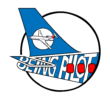What are the initial requirements of being a pilot?
There are some requirements for becoming a pilot, which you may find as easy or as obstacles. In some countries or flight schools, the factors may differ. There will be discussion of the initial requirements of both military and commercial pilots. N.B. We encourage you to read this article as general information and inquire about the exact demand on the website notice of Govt. Air Force, Airlines or flying academies. Requirements of a Military Pilot: Military pilot recruitment is being published on the Air Force website. Age: For military pilots, the age should be at least 18 years. But in some countries, the Air Force may require for 18-23 years old. Education: The minimum educational requirement is a high school diploma or equivalent [Such as GED, diploma from NIOS]. Some countries may consider mathematics and physics as mandatory subjects. Medical Tests: The students may undergo some mandatory medical tests to check whether they are physically and mentally fit or not. These might include- hearing tests, vision tests, cardiovascular tests etc. In many cases, 6/6 vision (which is equivalent to 20/20 vision in the United States) without correction is preferred for pilots, but corrective measures such as glasses or contact lenses are often acceptable within certain limits. The height requirement in the Air Force may vary by branch and aircraft. For instance, the U.S. Air Force accepts between 5 feet 4 inches (162.6 cm) and 6 feet 5 inches (195.6 cm) in height. For commercial pilots, The FAA does not have specific height requirements, but airlines may have their own height policies. Citizenship requirement: The student must hold citizenship in their respective country. For example, a student in the U.S. must be a U.S. citizen. Commitment: A dedication to serve the country for particular years after completing the training. Requirements of a Commercial Pilot: Few Airlines sometimes offer fully funded scholarships, or students might have to pay the flying academy for PPL, CPL or ATPL ratings. Visit Opportunity for further information. Age: The minimum age requirement is 18 years, but the maximum age may vary on the country’s regulations and retirement law. For instance, the FAA requires commercial airline pilots to retire at age 65. Education: The minimum education is required a high school diploma or equivalent. In some countries, some airlines require maths and physics with no GED. Again, some airlines may prefer a pilot with a bachelor’s degree. Medical Tests: Same as Military Pilot. Citizenship: Students can get aviation training from flying academies abroad, obtain scholarships from foreign universities and academies, and work for an airline in any country. Citizenship is not a barrier in commercial aviation. Finished reading? Read the article about PPL, CPL, and ATPL certificates here.
What are the initial requirements of being a pilot? Read More »

